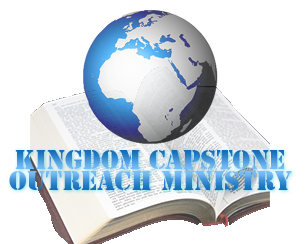You are here
PROPHETIC OPERATIONS (1)
“The Lord your God will raise up for you a PROPHET like me from your midst, from your brethren. Him you shall hear” – Deuteronomy 18:15
It’s helpful to seek clearer insight into the diversity of PROPHETIC OPERATIONS in the Old Covenant: “The Lord your God will raise up for you a PROPHET like me from your midst, from your brethren. Him you shall hear” (Deut.18:15). The prophet’s primary function in the Old Testament was to serve as God’s representative or ambassador by communicating His Word to His people. True prophets never spoke on their own authority or shared personal opinions, but delivered the message God Himself gave them. For example, God promised Moses, “Now therefore, go, and I will be with your mouth and teach you what you shall say” (Exo.4:12). He restated this: “I will raise up for them a Prophet like you from among their brethren, and will put My words in His mouth, and He shall speak to them all that I command Him” (v.18).
The Lord said to Jeremiah, “I have put my words in your mouth” (Jer.1:9). God commissioned Ezekiel by saying, “You shall speak My words to them, whether they hear or whether they refuse, for they are rebellious” (Ezek. 2:7). Many of the OT prophetic books begin with the words, “The Word of the LORD that came to...” (Hos.1:2; Joel 1:1; Mic.1:1; Zep.1:1; Jona.1:1). Amos claimed, “Thus says the LORD” (Amos1:3).
Prophetic ministry was not restricted to men in the Old Testament. Moses’s sister Miriam is called a “prophet” (Exo.15:20). So was Deborah (Jud.4:4) and Huldah (2 Kgs 22:14–20). There are occasional mentions of bands of prophets ministering in Israel – “group of prophets” or “sons of the prophets” (1 Sam. 10:5; 2 Kgs. 2:3, 5, 7; 4:38). As to how the Word of the Lord came to the prophets, in addition to the audible, internal voice of God, He revealed His will through visions (1 Sam. 3:1,15; 2 Sam. 7:17). Dreams were also involved: “Then He said, “Hear now My words: If there is a prophet among you, I, the Lord, make Myself known to him in a vision; I speak to him in a dream” (Num.12:6).
Some prophetic vessels expressed themselves with symbolic actions. For example, Moses and Joshua removed their shoes while standing on holy ground (Exo.3:5; Jos.5:15). Moses cast a tree into the bitter waters that became sweet (Exo.15: 22-25). Elijah divided the waters of the Jordan River by smiting them with his mantle (2 Kgs 2:8). Elisha cast salt into a spring to heal its bitter waters (2 Kgs 2:19-21). Jeremiah watched a potter create two vessels (Jer.18: 1-12). He also broke a clay vessel (Jer.19;10). Some of the prophets, including Abraham, Moses, Elijah, Isaiah, Jeremiah, and Ezekiel used symbolic actions to prophesy, without words, of future events. Their unconventional action, gesture, movement, or posture of itself may not have had an immediate practical purpose, but symbolic meaning or metaphoric application.
Adetokunbo O. Ilesanmi (Meditations)
- Log in to post comments
Latest Tweets
No tweets to display now.
Our Vision
The vision of KCOM is that:
"the earth shall be filled with the knowledge of the Glory of the Lord as the waters cover the seas" (Habakkuk 2:14).
"But we all, with open face beholding as in a glass the Glory of the Lord, are changed into the same image from glory to glory even as by the Spirit of the Lord" (2 Corinthians 3:18).
Copyright © 2013–2026 Kingdom Capstone Outreach Ministry. | Designed by ZoeWox Technologies
